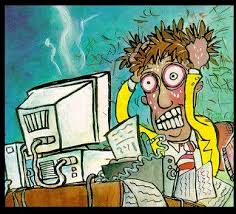#2 Masterful direction - in every Shyamalan film his talent as a director is clearly exhibited. He is not being arrogant when he parallels himself to Hitchock by making cameo appearances in his films. He is as talented - if not more- that than great master of suspense. To examine this I ask you to consider Signs and The Happening. In both of these films there the viewer never sees the monster. In signs there are very brief glimpses of an alien and in The Happening - the monster is the wind in the trees. Yet, he is able to make the view tense and jumpy with just implication. In The Happening when they figure out that it is coming from the plants - suddenly a beautiful shot of the wind blowing tall grass in a field becomes ominous. Run! The wind is coming. I also love his use of color both symbolically and as a means of distraction or direction. Often his scenes are beautiful and sinister at the same time.
# 3 Comic relief/ Satirical commentary. This is not in every film - but in most. Shyamalyn's ability to incorporate humor between tense moments, or to utilize light and bright moments of human tenderness to contrast darkness and fear is masterful. The Happening - I believe - is quite satirical. It is a funny movie. The over the top violence is ridiculous in places - but it again is showing something about human beings. The underlying theme that we are destroying the planet and it is going to get back at us is noble, timely, and scary. The humans stupidly offing themselves is not plain gore - it is exactly what we are doing every day by destroying our planet. Shamalyn also uses television and radio background broadcasts or newspaper headlines to underscore his points about society. Watch and listen for them and what seems inconsequential or funny is often a jab at what you might be missing all along.
#4 Use of Allegory and Archetype - this is scene in Unbreakable and The Lady in the Water the most - but it is in all of his stories. The Lady in the Water used allegory and archetype to present its tale of humanity. It was akin to Melville's Pequod in that that little apartment complex was the ship of the world - it represents the path we all share as human beings and the very essence of the human struggle: peril, doubt, cooperation, belief, and unity. It also had a mermaid -type lady so I loved it even more.
And he is a story teller of the best sort. He is writing High Concept stories and then bringing them to life in films that leave on thinking long after the screen goes black. Or at least they should if you are paying attention.
His work is inspirational to me in my own writing and if I could choose a director for DISTILLATION (if it ever were to get published and then made into a movie - hey I can dream) I would pick him. His subtlety and sophisticated treatment of the genre of suspense, horror, and fantasy is some of the best we have from today's creative minds.





